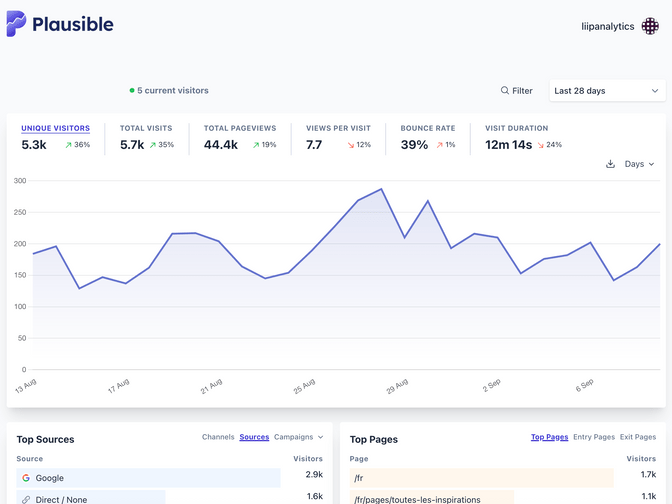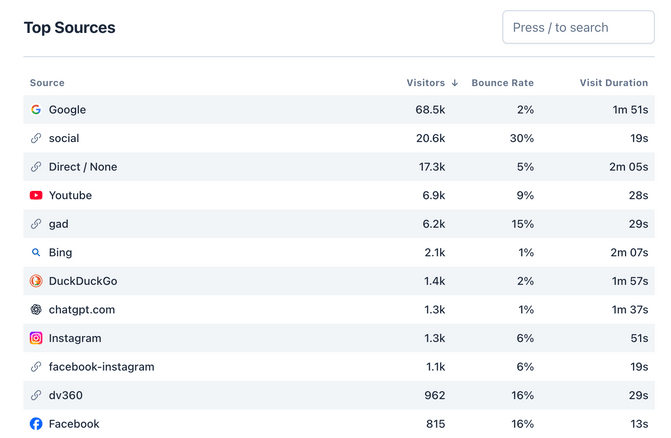Instead of competing on bells and whistles, Plausible focuses on delivering a clean, privacy-friendly, and affordable analytics experience. For our partners, that simplicity translates into confidence—confidence that the data they’re looking at is accurate, reliable, and free from unnecessary distractions.

One of the first things that stood out to me about Plausible is its pricing. Many analytics platforms can quickly become costly, especially when you start layering on additional features or scaling up traffic. Plausible, on the other hand, is competitively priced without cutting corners. That makes it a great fit not just for small businesses or nonprofits, but also for larger organizations that want reliable insights without the bloated costs of enterprise-level software.
Equally important is Plausible’s approach to privacy. Unlike most analytics tools, Plausible is fully GDPR-compliant by default. This means there’s no need to add a consent banner or manage complicated cookie policies on your site. The platform operates entirely without cookies, making it easier for businesses to respect their visitors’ privacy while still gathering the data they need. For end users, this translates into a smoother browsing experience, free from popups and disclaimers. For site owners, it’s one less compliance headache to worry about.

That said, Plausible isn’t without its limitations. For teams that rely heavily on tracking custom events, there is a bit of extra effort involved. Unlike some platforms that let you configure custom tracking with a few clicks, Plausible requires a more hands-on setup. This isn’t necessarily a deal-breaker, but it does add some complexity if you need highly detailed, event-based data. Another consideration is Plausible’s cookieless approach. While it’s a huge benefit from a privacy and compliance standpoint, it also means the tool doesn’t provide the same depth of individual-level tracking that some other platforms offer. Depending on your needs, that could be seen as either a limitation or a strength.
Still, I find that Plausible’s minimalist philosophy is exactly what makes it so valuable. In a market full of increasingly powerful and complex analytics tools, it stands out by focusing on clarity and essentials. Being open source is also something aligns with Liip's values. Sometimes less really is more—and Plausible proves that simple, privacy-friendly analytics can deliver more than enough insight to make smart decisions.
If you are interested in making data-driven decisions easier and cheaper, please get in touch!
